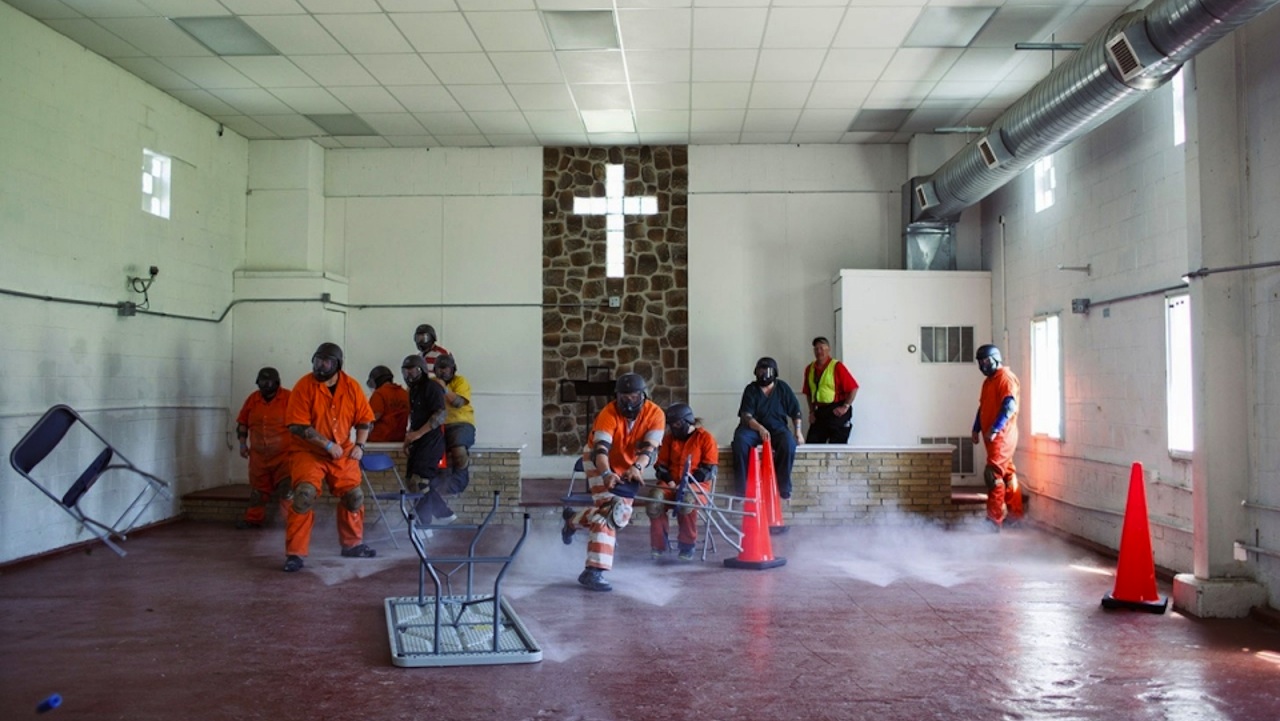We wrote a few weeks ago about an eerily dystopian fake town in the UK where riot police carry out simulated confrontations, complete with fake molotov cocktails. It turns out something quite similar happens here in the U.S., at a prison in West Virgina. Al Jazeera America‘s Evan Hill reported from the Mock Prison Riot, an annual event at the former West Virginia State Penitentiary, which was decommissioned in the 80s for conditions the Supreme Court ruled were uninhabitable.
This prison riot-LARP also acts as a community event, reassuring correctional officers that they’re on the right side.
More than one attendee refers to inmates as “the bad guys.” “You talk to all the alpha dog guys here and they just want to throw [criminals] in and let them rot,” says David Mason, a broad-chested Canadian with the parted hairstyle of a 1960s adman, who oversees Ontario’s special response teams.
The Mock Riot is half speculative training, half prison riot convention where companies come out to promote their latest riot-prevention gear.
Men in the exhibition hall crowd around booths stocked with the latest assault rifle from Beretta or gas grenade from a company called Safariland. There is one stall that advertises a computer system for prisoner services, such as refilling commissary accounts, but it sits empty. At an event dedicated to teaching guards how to subdue riots, there is little discussion here of why riots begin.
One company, DroneShield, sells a gun that shoots nets to take down remote controlled quadracopters, which have reportedly been used to fly drugs or guns into prison yards in recent years.
At this bleak event, Hill describes one weak ray of light in the form of psychologist Jennifer Meyers, who has worked in federal prisons and was there to try to penetrate the intense stress felt by guards who spend so much of their time in such dehumanizing environments.
She reels off statistics about the toll of corrections work. On average, prison guards live to age 59 and die within 18 months of retirement, she says. They don’t know how to cope with their stress. She projects stock images of alcohol, prescription drugs and a full plate of fast food on the screen behind her. She asks how many people eat in their cars.
It’s easy to sneer at these people who believe themselves morally superior to the people they frequently abuse. But the more complicated truth is that mass incarceration in America damages everyone who comes into contact with it, whether they are behind the bars or holding the key.
(Photos: Melissa Golden/Al Jazeera America)


